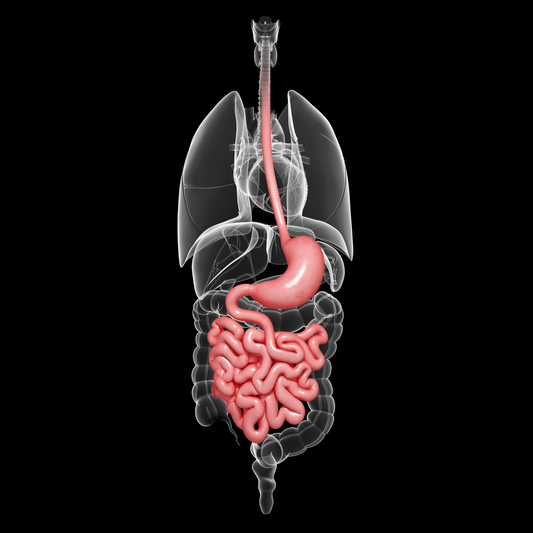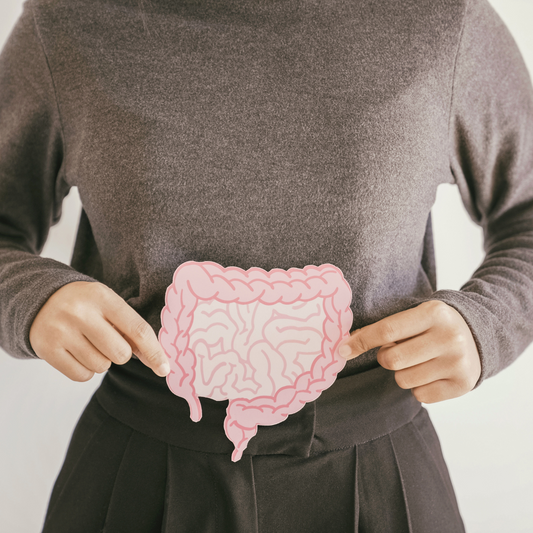
The Menopausal Journey: Understanding Symptoms and Stages
Introduction
Menopause is a natural biological process that signifies the end of a woman's reproductive years and is typically diagnosed once 12 months have passed since a woman’s last period. However, there are stages that precede and follow this diagnosis.
Every woman's journey through menopause is unique. It can be influenced by genetics, lifestyle factors, and overall health. As such, we wanted to provide insights and information into what are the 3 stages of menopause, the symptoms women may experience, and management strategies to promote health and well-being throughout this transitional period.
Perimenopause
Perimenopause, often referred to as the menopausal transition, is the stage preceding menopause. It typically begins several years before menopause, although the exact duration varies from woman to woman.
The signs of perimenopause
During perimenopause, ovarian function gradually declines, leading to fluctuating hormone levels, particularly oestrogen. This hormonal instability gives rise to various symptoms.
Changes to Menstruation
Perimenopause is characterised by changes in menstrual patterns, with periods becoming irregular in frequency, duration, and flow. Women may experience shorter or longer cycles, skipped periods, or heavier/lighter bleeding.
Hot flashes and night sweats
Hormonal fluctuations can trigger sudden sensations of heat (hot flashes) and episodes of excessive sweating (night sweats), which can disrupt sleep and impact daily activities. These can interfere with sleep quality, leading to insomnia, daytime fatigue, and irritability.
Mood Swings
Changes in oestrogen levels can affect neurotransmitters in the brain, leading to mood swings, irritability, anxiety, and depression.
Vaginal Changes
Declining oestrogen levels during perimenopause can result in vaginal dryness, itching, discomfort, and pain during intercourse. Changes in vaginal pH may also increase the risk of urinary tract infections.
Menopause Symptoms
Menopause is officially declared when a woman has not had a menstrual period for 12 consecutive months, marking the point at which her ovaries have stopped producing eggs and the end of her reproductive years. It represents a significant hormonal shift, with oestrogen and progesterone levels remaining consistently low.
Sleep disturbances, including insomnia, frequent awakenings, and non-restorative sleep, are common during menopause, primarily due to nocturnal hot flashes and night sweats. Poor sleep quality can exacerbate other menopausal symptoms and impair daytime functioning.
Postmenopause
Postmenopause refers to the phase following menopause, extending throughout the remainder of a woman's life. Oestrogen levels remain low but stable, and menstrual cycles cease permanently. While some menopausal symptoms may diminish or resolve during postmenopause, women may still experience ongoing issues, including:
Vaginal dryness and atrophy
Despite the absence of menstrual periods, vaginal dryness and atrophy may persist or worsen during postmenopause. Regular use of vaginal moisturisers and lubricants, along with hormone replacement therapy (HRT) or local oestrogen therapy, can help alleviate symptoms and improve sexual comfort.
Bone health
Oestrogen plays a critical role in maintaining bone density, and its decline post menopause increases the risk of osteoporosis and fractures. Women are encouraged to adopt lifestyle measures to support bone health, including regular weight-bearing exercise, adequate calcium and vitamin D intake, and avoidance of smoking and excessive alcohol consumption.
Cardiovascular health
Postmenopausal women can face an increased risk of cardiovascular disease, including heart disease and stroke. Oestrogen has cardioprotective effects, and its decline post menopause may contribute to adverse changes in lipid profiles, blood pressure, and vascular function. Lifestyle modifications, such as maintaining a healthy diet, engaging in regular exercise, managing stress, and avoiding smoking, are essential for cardiovascular risk reduction.
Weight management
Metabolic changes associated with ageing and hormonal fluctuations can mean that post menopausal women can be predisposed to weight gain. Obesity is a risk factorThe symptoms experienced during the 3 stages of menopause can be summarised as follows:
- Changes to menstruation
- Hot flashes and night sweats
- Mood swings
- Vaginal dryness and atrophy
- Cessation of the menstrual cycle
- Changes in libido
- Sleep disturbances
- Bone health
- Cardiovascular health
- Weight management
Continue reading to learn more about these symptoms and when they are experienced…
Menopause: A Natural Transition
Menopause is a significant milestone in a woman's life, marking the cessation of menstrual periods and the end of fertility. It typically occurs between the ages of 45 and 55, though it can occur earlier or later in an individual’s life. It can also be caused by non-natural events, such as surgery to remove the ovaries. On the whole, menopause is a natural part of the ageing process, driven by hormonal changes that impact the reproductive system, primarily due to a decrease in hormone production.
The 3 Stages of Menopause
Menopause is a process, which can be divided into three stages: perimenopause, menopause and post menopause. Understanding how these stages progress and the symptoms commonly associated with each stage can provide individuals with key information to help them manage this period of their life.
Whilst major symptoms can overlap between stages, there are distinct differences that can categorise each stage.
Cessation of the menstrual cycle
During perimenopause, women experience irregularities in their menstrual cycle. However, as above, the menopause stage is characterised by a cessation of periods.
Hot flashes and night sweats
These vasomotor symptoms are hallmark features of menopause, affecting up to 75-80% of menopausal women. Hot flashes manifest as sudden sensations of heat, often accompanied by sweating and flushing of the skin, while night sweats refer to episodes of excessive sweating during sleep. These symptoms can occur during menopause. However, they are particularly prevalent during perimenopause.
Mood Changes
As a woman progresses from perimenopause to menopause, the ovaries gradually decrease their production of oestrogen and progesterone, leading to hormonal imbalance. Oestrogen in particular, plays a significant role in regulating mood by influencing neurotransmitters such as serotonin, dopamine, and norepinephrine, which are involved in mood regulation, stress response, and emotional well-being. These hormonal fluctuations can impact mood regulation, leading to mood swings, irritability, anxiety, and depression. Women may also experience decreased stress tolerance and emotional lability.
Vaginal dryness and atrophy
Oestrogen deficiency during menopause can cause thinning of vaginal tissues, reduced lubrication, and increased susceptibility to irritation and infection. Vaginal dryness can result in discomfort or pain during sexual intercourse, contributing to sexual dysfunction and diminished quality of life.
Changes in libido
Fluctuating hormone levels may influence sexual desire and arousal, leading to changes in libido and sexual function. Women may experience decreased interest in sex, reduced genital sensitivity, and difficulty achieving orgasm.
Sleep disturbances
for various health conditions, including diabetes, cardiovascular disease, and certain cancers.
Managing Menopausal Symptoms
While menopausal symptoms can be challenging, various management strategies are available to alleviate discomfort and promote overall well-being.
Lifestyle modifications are likely to be the first port of call. Adopting healthy lifestyle habits can help mitigate menopausal symptoms and promote overall well-being. The adoption of lifestyle modification are likely to be dependent on the symptoms (and the severity thereof) for each individual.
Supplements for Menopause
However, alongside more general recommendations such as a healthy diet and exercise, there are recommendations on taking specific supplements for menopause to mitigate certain risks. As above, the increased risk of osteoporosis and bone fractures means that calcium and vitamin D supplements is a good choice, especially for those looking for supplements for menopause joint pain. In addition, other supplements such as Hair, Skin and Nails can also help to mitigate symptoms.
Hormonal fluctuations during perimenopause and menopause can cause fatigue and reduced energy levels. As such, individuals may consider a B12 supplement as vitamin B12 is involved with energy metabolism. It can also help to maintain healthy nerve function and neurotransmitter synthesis, helping with mood regulation and cognitive function.
Recommendations include maintaining a balanced diet rich in fruits, vegetables, whole grains, and lean protein; engaging in regular physical activity, including aerobic exercise, strength training, and flexibility exercises; managing stress through relaxation techniques, mindfulness meditation, yoga, or tai chi; getting an adequate amount of sleep each night; avoiding tobacco use and excessive alcohol consumption; and staying connected with friends and family.
Oestrogen Therapy
Oestrogen therapy, either alone or in combination with progestin can effectively relieve vasomotor symptoms, vaginal dryness, and urogenital atrophy. However, hormone therapy carries potential risks and side effects, including an increased risk of breast cancer, stroke, and venous thromboembolism. Women considering
hormone therapy should discuss the potential benefits and risks with their healthcare provider and explore alternative treatment options.
Non-hormonal therapies
Non-hormonal treatments, such as selective serotonin reuptake inhibitors (SSRIs), serotonin-norepinephrine reuptake inhibitors (SNRIs), gabapentin, and clonidine, may be prescribed to manage vasomotor symptoms, mood disturbances, and sleep disturbances. These medications work by modulating neurotransmitter activity in the brain, alleviating symptoms without the use of hormones.
Vaginal moisturisers and lubricants
Over-the-counter vaginal moisturisers and lubricants can provide symptomatic relief for vaginal dryness and discomfort during sexual activity. Regular use of these products can enhance vaginal lubrication, reduce friction, and improve sexual satisfaction.
The 3 stages of menopause are a natural progression in a woman’s life. Whilst there are symptoms that can be challenging, we hope that this article provides individuals with valuable information to help them navigate menopause and to provide relief for symptoms experienced.








